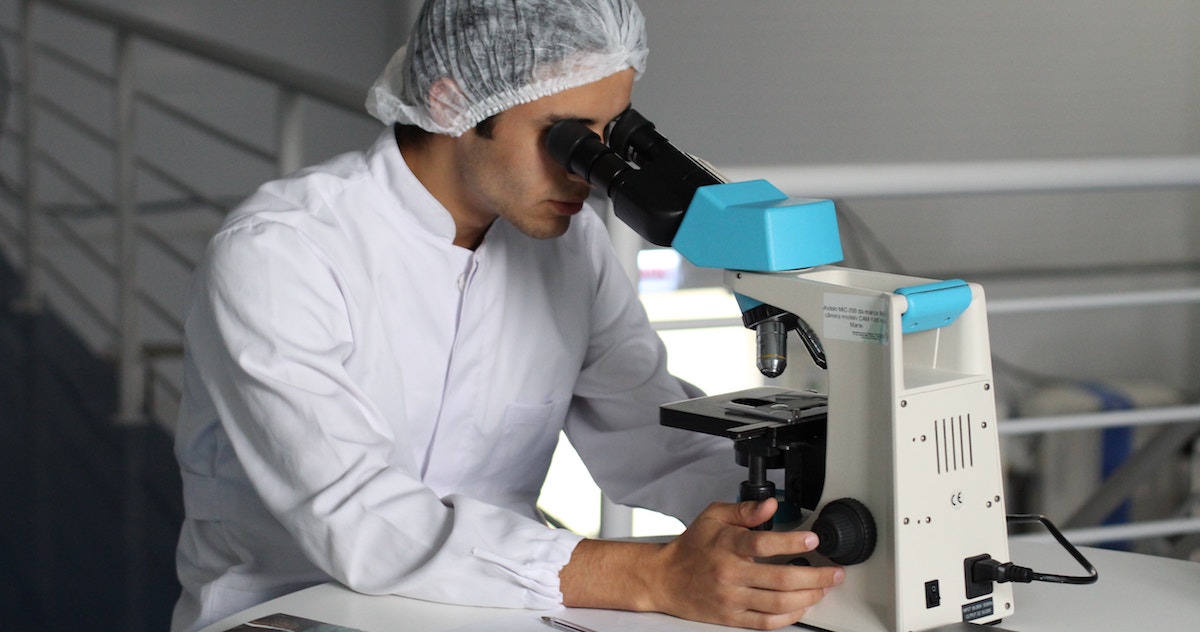
How to Become a Pathologist... The Most Important Doctor You'll Never See
Make a lucrative career out of solving medical mysteries,no bedside [...]

The personal statement is incredibly important — for both the student and the admissions committee. Applicants must use this chance to stand out from the crowd of hundreds or even thousands of candidates who may be vying for an interview during this extremely competitive process. Learn from a Noodle Expert what makes one essay work and another end up in the discard pile.
For students who are in the process of applying to medical school, the prospect of composing a personal statement may seem like a daunting — even frightening — task. Most people would rather not try to encapsulate their lives in a short essay to be shared with complete strangers.
In truth, though, the medical school personal statement offers a great opportunity to shine, above and beyond your academic record. Learn from the MedSchoolCoach lead MD/PhD Advisor, Brian Wu, about how to craft an effective statement — and the pitfalls to avoid in the process.
The personal statement is critical — for both the student and the admissions committee. It offers you the chance to stand out from a crowd of hundreds — even thousands — of applicants who are also vying for an interview during this extremely competitive process. For the committee, the statement is important because a well-written and engaging essay helps them to winnow the pool of applicants during this first step of the selection process.
In general, selection committees are looking for essays that are eloquent and concise, as well as successful at communicating an applicant’s character and motivation for wanting to undertake the rigors of medical school. Outstanding statements share these qualities:
An opening that engages the reader, a powerful central theme that is woven and supported throughout, and a strong conclusion that pulls the threads together
A strong and distinctive voice that uses active verbs to convey the applicant’s personality and attitudes toward the practice of medicine
An arc that personalizes the applicant for the committee
Language that concisely tells a complex, well-developed story in the mere 5,300 characters — that is, letters and spaces and punctuation — that the American Medical College Application Service currently permits
Writing that is highly polished
This is not a task that can be rushed. Once you complete your first draft, you should read it aloud and check carefully that you’ve used proper grammar and punctuation, and that the ideas flow smoothly. It’s also helpful to have other people read it to make sure there are no ambiguities or mistakes. Most students revise their personal statements multiple times until it meets all of the standards I mentioned above.
Just as there are some traits that make it more likely that a statement will be considered favorably by an admissions committee, there are others that may cause a committee to decline to interview a candidate. Unsuccessful personal statements will often contain:
Poor spelling, grammar, or structure
Clichéd or trite phrases (e.g., “wanting to help people”)
A complaining, whining, or victimized tone
Grandiosity or self-importance
Content that doesn’t help explain why a candidate should be admitted to medical school
Content that is overtly political, religious, or controversial (e.g., abortion or socialized medicine)
Medical school statements can contain descriptions of important life experiences — even very personal or negative ones — but only in regard to how they have shaped you into an individual who will make a good doctor. It’s also best to avoid highly-charged issues since these are, by their nature, provocative to many people. Since you have no way of knowing who sits on an admissions committee and who may be offended by your views, the prudent path is to steer clear of provocative topics.
While your aspirations to contribute meaningfully to the field of medicine are certainly important, committees are generally not looking for candidates who claim to want to pursue medicine in order “to cure cancer”; rather, they want students who can weather the rigors of medical school and who possess the strength of character to become good doctors.
Students whose personal statements are successful take the opportunity to describe — concisely and convincingly — their desire to attend medical school and eventually practice medicine. They communicate their personality to the admissions committee and demonstrate that their character and temperament are suitable to the practice of medicine. Medicine, after all, is a profession founded on trust between doctor and patient; expertise is important, but character, too, is essential. The best personal statements enable admissions committees to discern these traits in their applicants.
_Follow this link to ask questions and find further advice about medical school essays._
Questions or feedback? Email editor@noodle.com

Make a lucrative career out of solving medical mysteries,no bedside [...]

Choosing a major outside of the typical pre-med area of [...]

If you've thought about applying to medical school but weren't [...]
Categorized as: Medicine, Nursing & Healthcare